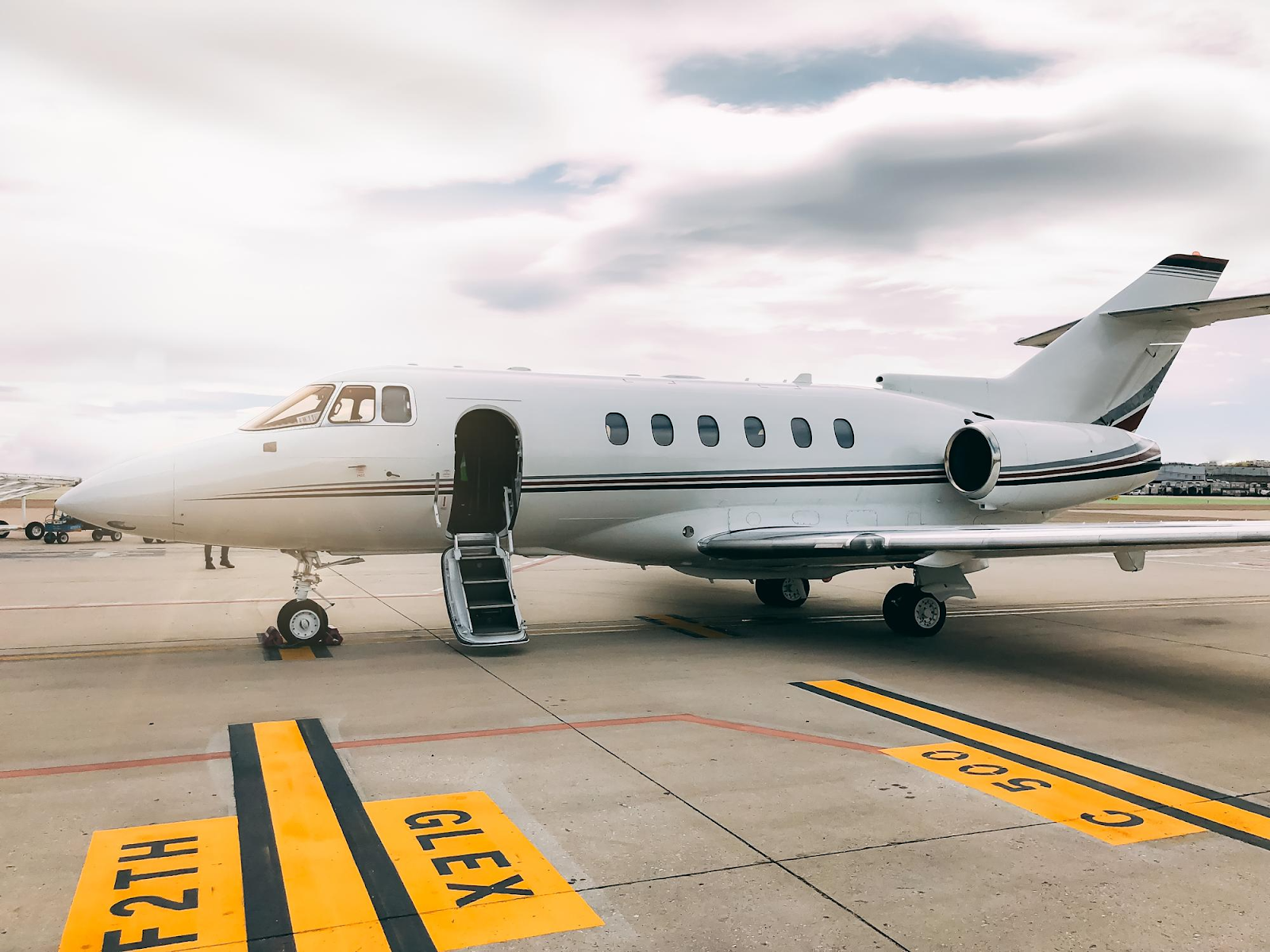Discover insights, tips, and stories from the skies — from aircraft buying guides to pilot training.






Published: July 17, 2025
Did you know that private jet travel has surged by almost 30% in the last two years? More corporate executives and families are opting to fly privately. This leads us to the question, "Are private planes a good investment?"
You may be thinking of luxury and convenience, but these jets come at a high cost.
This article will teach you everything you need to know about the expenses, benefits, hazards, and whether having one is a good option for you.
When you ask, Are private planes a good investment? You're really trying to figure out if buying one will help you with money, time, or comfort. A good investment typically yields something valuable in return.
It might save you time by skipping airport lines. It may also allow you to fly at a time that is most convenient for you.
Some people make money by renting or selling their jets. Of course, flying private provides a level of comfort and privacy that commercial aircraft cannot match. Now, let's examine the actual expenses and benefits.
First, consider the expense of purchasing a private jet. A little one might cost around $3 million, while a large one could cost $20 million or more. That is a lot of money! Still, if you travel frequently and value time savings and control, you may be wondering if private planes are a wise investment. But purchasing the jet is only the beginning. You'll also need to consider additional charges.
After purchasing a private jet, there are still numerous yearly costs to consider. Fuel alone can cost between $2,000 and $5,000 for every hour you fly. You’ll also need to pay for regular maintenance and safety checks, which can easily exceed $100,000 per year. Additionally, storing your jet in a hangar, purchasing insurance, and compensating the crew—such as the pilot and co-pilot—can add tens of thousands of dollars more each year.
These are big expenses that don’t go away once you own the plane.
If you fly about 200 hours a year, your total yearly costs could be more than $1 million, and that’s not even counting the money you spent to buy the jet in the first place. Before you move forward, it’s essential to ask yourself, 'Are private planes a good investment?' That question depends on how often you fly and how much value you place on time, comfort, and convenience.
The frequency of your flights is crucial. If you fly 200 hours or more per year, owning a private jet may be cheaper per hour than chartering one. In this case, the convenience may outweigh the costs.
However, if you fly less than 100 hours per year, chartering or other options may be more cost-effective. Furthermore, you must decide whether you value time savings and flexibility enough to make significant investments. This balance is critical to answering the question, "Are private planes a good investment?"
So, what exactly do you receive from flying on a private jet? You don't have to wait in long queues or deal with crowded airports. You can also choose when to fly, making your schedule more manageable. Private flights can also land at smaller airports, which may be significantly closer to your desired destination. These items help you travel faster and more comfortably.
Assume you regularly spend two hours at a regular airport. With a private jet, you might be on the plane in 15 minutes. This means you'll save nearly two hours each time you fly. If you fly frequently, the saved time adds up quickly. That is why many people wonder: Are private jets a smart investment? —because time saved can be extremely valuable, particularly for business or family demands.
If you use your private jet for business purposes, you may be eligible for certain tax breaks. For example, you may be able to deduct the cost of flying, as well as the depreciation of the jet's value. In some locations, there are also unique tax provisions that benefit persons who fly for work.
However, tax restrictions vary depending on where you live and the purpose for which you use the jet. So, are private airplanes a good investment? It's a good idea to contact a tax professional to ensure you understand what you can and cannot claim.
If owning a private plane seems too expensive, there are various methods to fly privately without purchasing the entire jet. Chartering is one alternative, in which you pay for each flight individually. This allows you to enjoy the pleasure and convenience of a private flight without incurring the high costs of owning a jet. Another alternative is to purchase jet cards or memberships in advance for a set amount of flight hours. This sometimes results in lower pricing than booking each flight separately and simplifies planning.
You might also consider fractional ownership, which entails sharing a plane with others. You each own a portion of the plane and share expenses, such as fuel and maintenance. These choices give you more flexibility without the trouble and cost of owning an aircraft on your own. So, if you're thinking, are private planes a good investment? These options may offer many of the same advantages while being safer and more cost-effective.
When you buy a jet, selling it later can be challenging. If the model is popular and demand is strong, resale is easier. However, rare or older jets may not attract buyers quickly. That means you could hold onto the jet tighter until someone pays a good price.
As a result, ease of resale is an important consideration when deciding Are private planes are a good investment?
Now you understand the most crucial aspects of having a private jet. You've seen the high initial fees as well as the annual costs. You also understand how much time you can save and how jets depreciate over time. There may be some tax advantages, and you've considered alternative choices such as chartering, memberships, or sharing a plane. You also understand that selling a plane later may not be easy or provide the whole price you bought it for.
So, are private planes a worthwhile investment? It all depends on you. If you fly frequently, desire more privacy, and can afford the costs, owning a jet may be a sensible option. However, if you do not fly frequently or do not require full-time use of a jet, alternative options may be more cost-effective. Consider your needs and budget before making a final decision.
Are private planes a worthwhile investment? It depends on your circumstances. If you value your time, fly frequently, and select the correct aircraft, they can be a wise choice. However, before making a decision, consider all of the expenses and dangers involved.
Think carefully, study the numbers, and consult experts. Only then can you determine whether having an aircraft makes sense for you. After all, the best investment is one that matches your lifestyle and ambitions, not someone else's.
Private planes, like most other vehicles and equipment, depreciate with time. The value can fall by 30% to 50% within the first five years, depending on the model and usage. While some high-end or limited models retain their value better, most jets depreciate over time. So, are private planes a smart investment? The resale value and depreciation are crucial elements to consider.
Typically, purchasing a jet demands a net worth of at least $20 million. This ensures that you can afford both the purchase price and recurring annual expenses, such as fuel, insurance, and maintenance. If you don't fly much or don't have enough disposable income, complete ownership may not be practical. That is why many people wonder, "Are private planes a good investment?" before making such an important financial decision.
Private jet profit margins are typically modest, with many owners breaking even or incurring a loss. The secret is to charter it out, handle maintenance properly, and select a model with high resale value. Even so, returns are often lower than those of typical investments. So, are private planes a worthwhile investment? Only if you consider lifestyle value in addition to money returns.
Leasing is best for short-term use or if you fly fewer than 100-150 hours per year. Buying may be more beneficial for frequent flyers or business owners who need complete control. However, ownership has large upfront costs, whereas leasing offers greater flexibility with fewer commitments. To determine whether private jets are an appropriate investment. Consider these options based on your travel frequency and budget.
Chartering your jet when it’s not in use can generate tens of thousands of dollars per month, depending on the aircraft type and demand. Still, these earnings often go toward covering fixed and variable costs. The goal is typically to offset costs, not achieve significant profits. That’s why one must carefully analyze all expenses to decide if private planes are a good investment from both financial and practical standpoints.